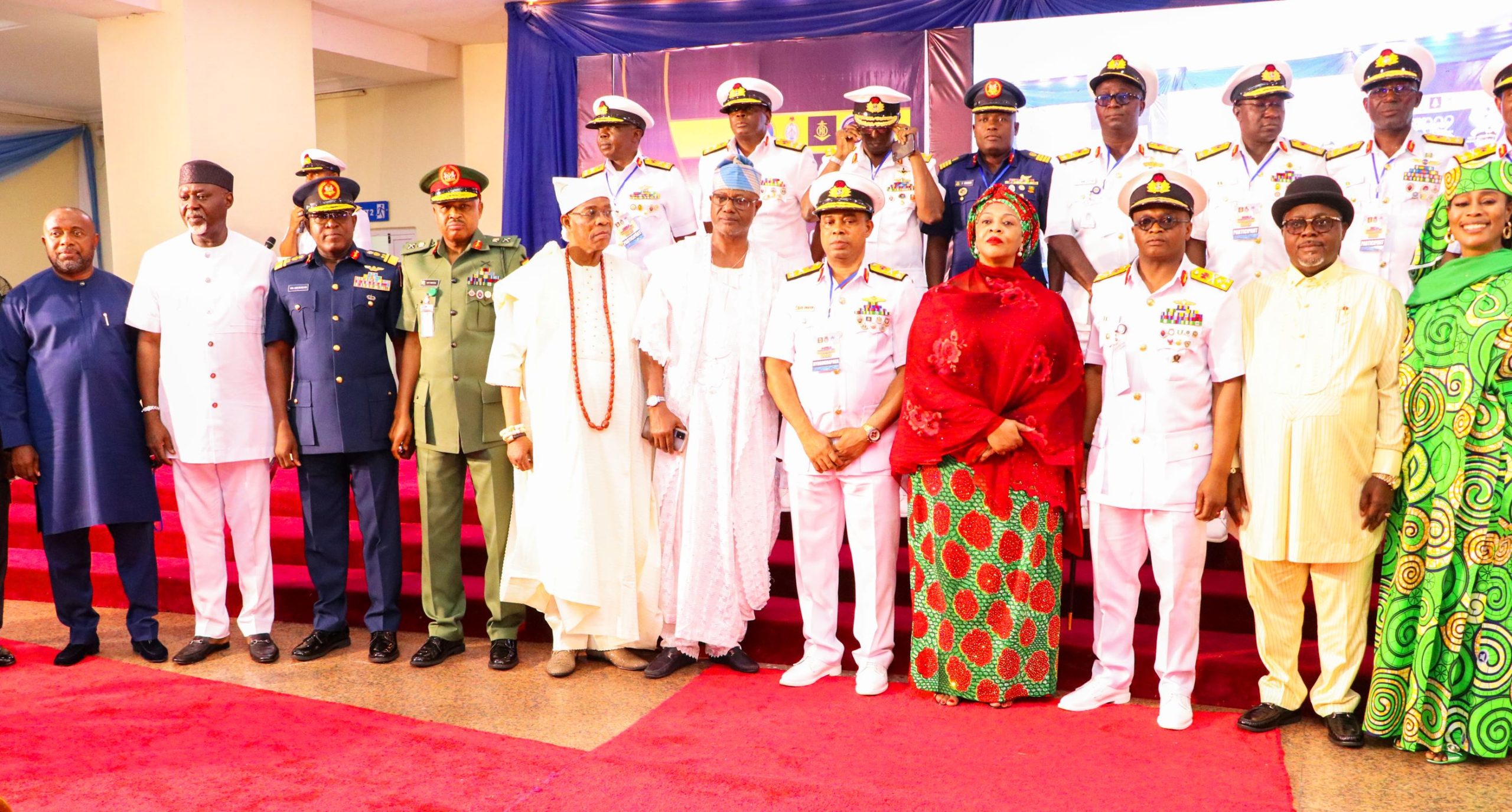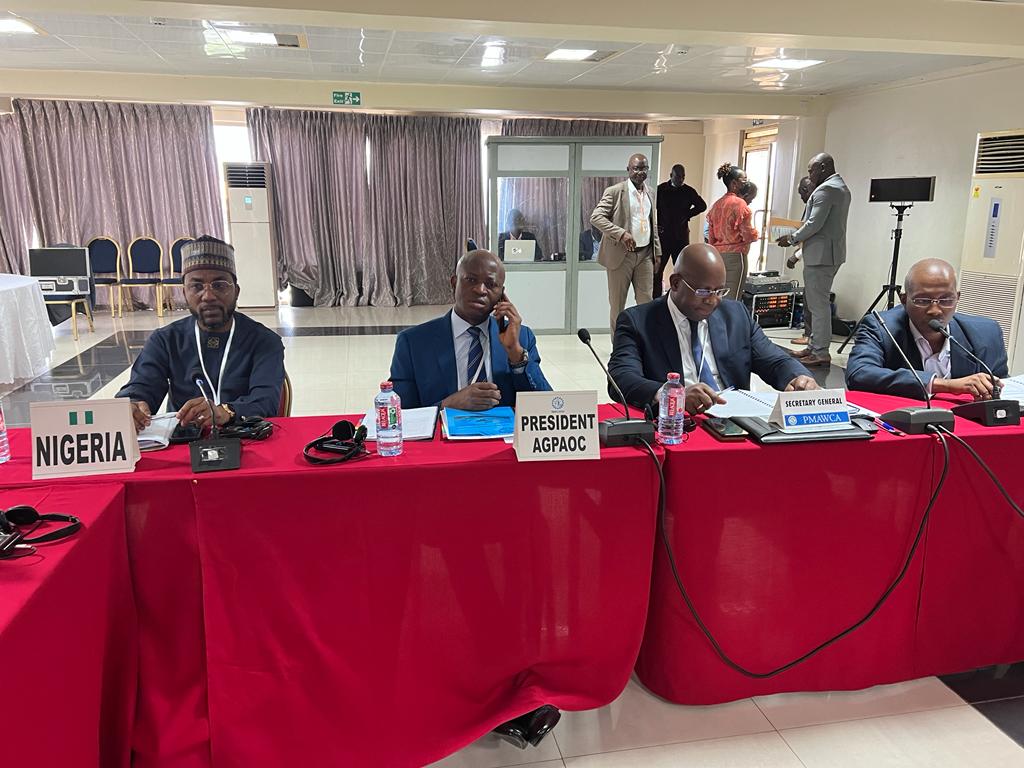The Minister of State for Transport, Sen. Gbemisola Saraki, has sought for more women participation in hydrography practice as the world walks the talk in the United Nations Ocean Decade towards 2030 Agenda.
Saraki expressed this interest to the Nigerian Navy on Tuesday while she delivered her speech as the Special Guest of Honour at the 2022 World Hydrography Day with the theme: “Hydrography: Contributing to the United Nations Ocean Decade,” which held at the Naval Dockyard Ltd., Victoria Island, Lagos.
She said it was important to talk about the inclusion of women in this field as there has always been low representation of women in hydrography as is seen in other fields like science, technology, engineering and mathematics (STEM).
Her words: “Every day is Hydrography Day to a Naval Officer or a Cadet. Like other science, technology, engineering and mathematics (STEM) fields, hydrography has traditionally seen low rates of female participation.
“It is my hope that in your pursuit of excellence, you will begin to promote and include women in hydrography daily as well.
“This will be a good project for the Hydrographer of the Nigerian Navy, which Rear Adm. Chukwuemeka Okafor is to champion,” she said.
She congratulated the Federal Government, the Federal Ministry of Transportation and the Nigerian Maritime Administration and Safety Agency (NIMASA) for committed and sustained efforts at tackling piracy, which has earned the nation, zero pirates attacks in over five months.
“As we are in celebratory mood, let me seize this opportunity to celebrate the success of our nation in combatting piracy and crimes at sea in the Gulf of Guinea and our own territorial waters.
“Today marks 5 months of zero attack. This is the first time in 28 years that there has been no attack. This is a feat being duly recognized by the International Maritime Bureau.
“I therefore congratulate the Federal Government, The Federal Ministry of Transportation and the Nigerian Navy and of course, NIMASA on this remarkable achievement. I hope that the collaboration between that made this possible will continue,” she said.
She, however, called for more funding for research and development in ocean science, considering that it is both a foundation for economic prosperity and security maintenance.
“The oceans have been of immense importance both as a medium for global trade and a source of livelihood to humankind, as well as revenue generation for governments.
“As the world battles environmental pollution, there is growing concern for the future of the ocean, particularly as it relates to the health of its biodiversity.
“Despite these looming dangers threatening the world’s oceans, there isn’t enough effort at understanding the ocean environment to elicit appropriate actions to improve its health.
“Unfortunately, only about 2% of the national research budget is allocated to ocean research. Without adequate research funding, the data and the understanding necessary to manage ocean science and impact suffers. Countries like Nigeria with enormous strategic ocean assets need the resource allocation and expertise of the Navy as a national strategy,” she said.
She expressed optimism that Nigeria’s actions at improving hydrographic practice for robust needed information in the field would help achieve growth in the maritime sector.
Her words: “Some of these actions include: the on-going efforts to establish a National Hydrographic Agency, which will provide policy direction for synchronised hydrographic practices amongst stakeholders in the country.
“Also, the recent acquisition of a 60-meter offshore survey vessel: NNS LANA will enable the Nigerian Navy to collect relevant information about our ocean.
“This action is already receiving global accolade, with NNS LANA, awarded the “Best Large Research Vessel in the world for the Year 2022.”
“This will go a long way to help Nigeria embrace a robust mechanism to leverage the UN Decade of Ocean Science.
“This will improve the welfare and prosperity of Nigerians and the sustainability of our maritime environment.”
In his remarks, the Chief of Naval Staff (CNS), Vice Adm. Awwal Gambo, said that the Navy had achieved another milestone in developing hydrographic capacity because its hydrographic office had commenced production of nautical publications.
“Accordingly, two publications, namely “Symbols and Abbreviations used on Nigeria’s Paper Charts” and “Rules of the Road” were unveiled in the course of the event.
“Additionally, NNS LANA unveiled its maiden magazine; “The Gondola”, which chronicled activities from construction till date,” the CNS said.
Gambo said that these huge hydrographic capacity development efforts were coming at a time the world was focused on the use of ocean sciences to achieve sustainable development.
Speaking also, the Nigerian Hydrographer, Rear Adm. Chukwuemeka Okafor, highlighted the important role hydrography plays in human survival, saying at least 3.5 billion people depend on the ocean resources for their primary sources of food, just as the oceans provide numerous medicinal and health benefits to humans.
He, however, noted that “Despite these benefits, human activities are increasingly resulting to marine pollution, ocean acidification, overfishing and sea level rise among others, which directly impinge on the intricate workings, which keep the oceans and our planet, in a perfect symbiotic balance.”
Okafor also spoke on the importance of adequate awareness to drive supporting policies for more effective hydrographic service in Nigeria.
He said: “As we deliberate on the contributions of hydrography, towards the conservation and sustainable use of the oceans for the next decade, we need to ask ourselves, how much of hydrographic information is available to policy makers in Nigeria, to guide them in the governance of Nigeria’s territorial waters, as a part of the world’s oceans?
“How much of hydrographic information is available to maritime users in Nigeria to enable them engage in practices that would ensure the conservation and sustainable use of Nigeria’s waters? Again, what ocean education, does the people living within 50 miles of Nigeria’s coast, have to enable them indulge in activities that would improve the health of Nigeria’s waters?
“Lastly, how many of our policy makers, are aware that, hydrographic information, can help them provide regulatory framework, to facilitate sustainable interactions within Nigeria’s ocean? I strongly believe, that, at the end of today’s world hydrography day celebration in Nigeria, answers to these posers would have been provided.”


































































